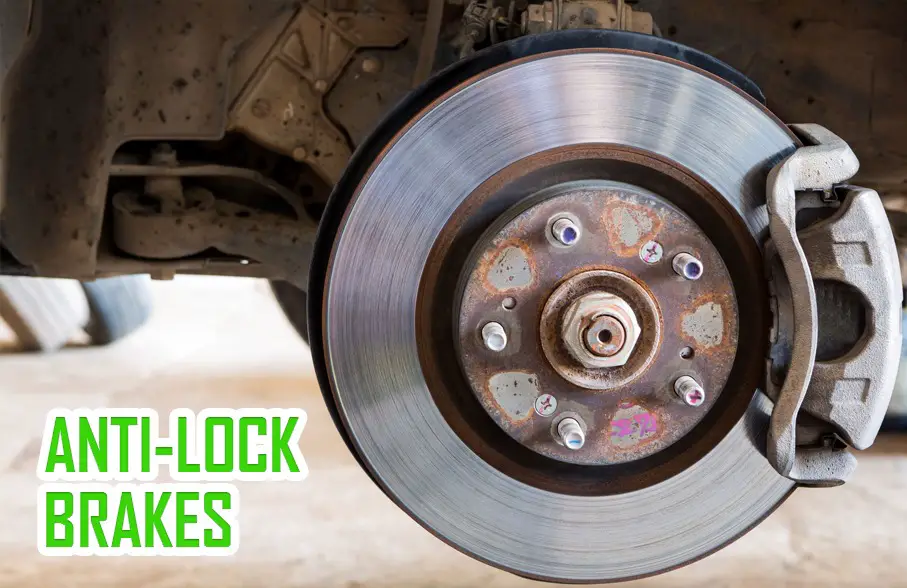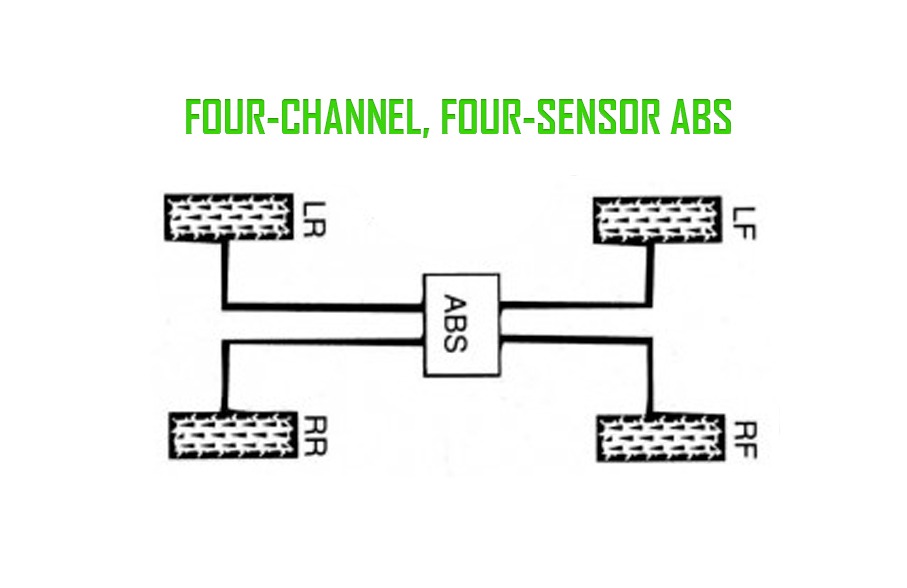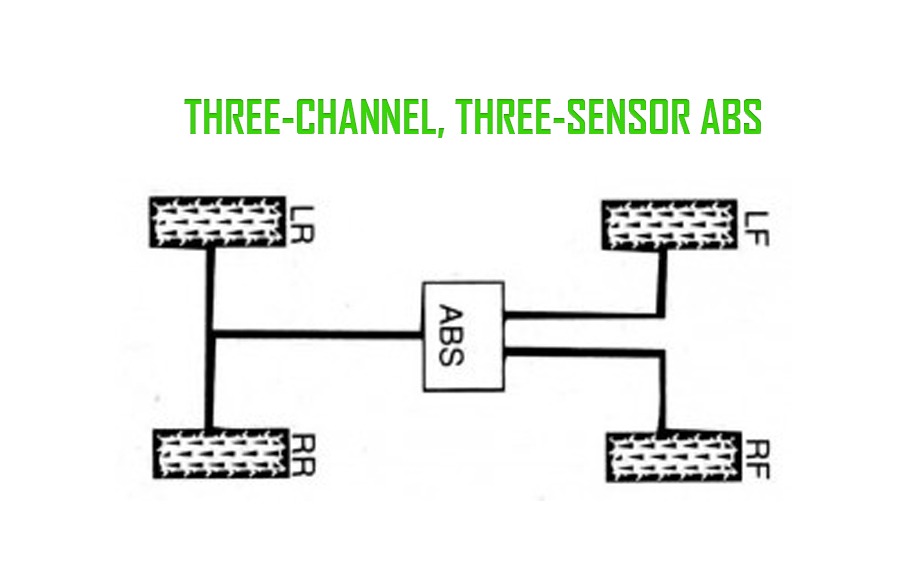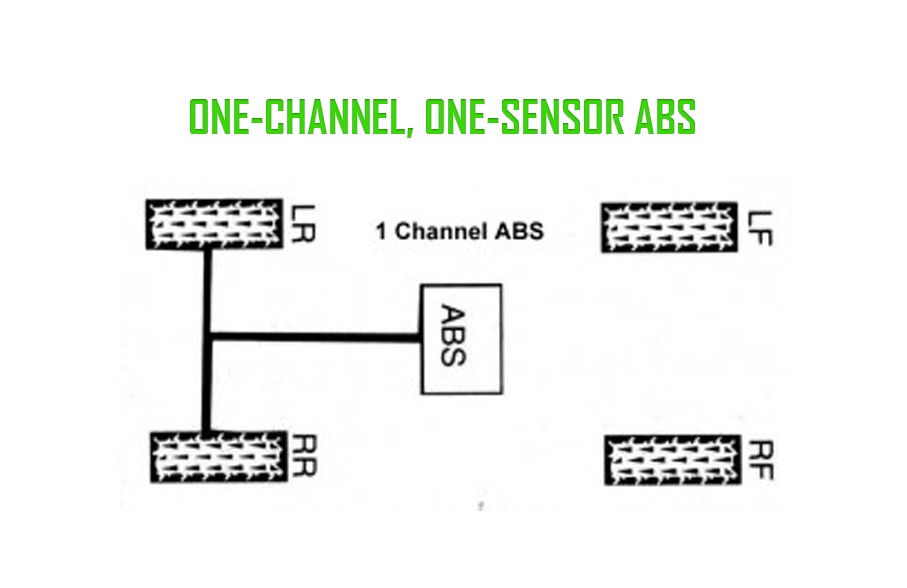What Are Anti-Lock Brakes? How Do They Work?
Anti-lock brakes (ABS) are standard equipment on modern cars. They prevent wheels from locking up during sudden stops or emergency maneuvers. ABS systems also reduce brake fade, which occurs when braking force decreases over time.
ABS was originally developed for motorcycles, but has since become commonplace on automobiles. The system uses sensors to detect wheel speed and apply pressure to each individual wheel independently. This prevents the vehicle from skidding out of control.
What are anti-lock brakes?

Anti-lock brakes are a safety feature on many modern vehicles. They help drivers avoid skidding and maintain control of their vehicle in emergency braking situations.
Anti-lock brakes do this by rapidly pumping the brakes when they sense that the wheels are about to lock up. This prevents the wheels from skidding and losing traction.
Anti-Lock Brake Types
Four-channel, four-sensor ABS

Four-channel, four-sensor ABS is the most common type of anti-lock brake system. It uses four sensors (one at each wheel) to monitor wheel speed.
If one of the wheels begins to slow down, the ABS pump will activate and apply the brakes to that wheel only. This prevents the other wheels from locking up and helps the driver maintain control of the vehicle.
Three-channel, three-sensor ABS

The three-channel, three-sensor ABS uses one wheel speed sensor per wheel, with each sensor monitoring one wheel. The three-channel, three-sensor ABS is effective at preventing wheel lockup and reducing braking distances.
One-channel, one-sensor ABS

One-channel, one-sensor ABS is the most common type of anti-lock braking system for motorcycle. It uses a single wheel speed sensor and a single hydraulic channel. One-channel, one-sensor ABS is typically found on motorcycles and older vehicles.
How do anti-lock brakes work?
Anti-lock brakes are a type of car safety feature that helps to prevent skidding and maintain control during sudden stops. Here’s how they work:
When you hit the brake pedal, the anti-lock braking system (ABS) is activated. This system starts pumping brakes fluid to each wheel faster than your foot can pump it.The pressure from the fluid build-up prevents the wheels from locking up and skidding.
You may feel the brake pedal pulsing as the system does its job.If you need to make a sudden stop on a slippery road, your ABS will help you maintain control of your car so you can steer around obstacles.
ABS is often confused with traction control, but they’re totally different. In fact, ABS is an important feature that makes traction control possible. Traction control helps maintain a constant speed by reducing engine power when you’ve got too much throttle on slippery surfaces.
What are the benefits of anti-lock brakes?
Anti-lock braking systems use sensors to measure the speed of each wheel individually. When any wheel starts to lose traction, the ABS pumps pressurize fluid into the brake caliper until it reaches maximum capacity.
This applies the brakes to the locked wheel. In addition, the ABS can be set to automatically engage if the vehicle detects an impending loss of traction.
Are there any drawbacks to anti-lock brakes?
Anti-lock brakes are a safety feature found on many modern vehicles. They work by preventing the wheels from locking up when the brakes are applied hard, allowing the driver to maintain control of the vehicle.
However, there are some drawbacks to anti-lock brakes. They can be less effective in certain conditions, such as on slippery roads, and they can add to the cost of repairs if they are damaged.
How do I know if my car has anti-lock brakes?
Most modern vehicles are equipped with anti-lock brakes, but there are a few ways to tell for sure if your car has them.
First, check your owner’s manual. It should say whether or not your car has anti-lock brakes.
You can also look for a telltale sign on the dashboard. Many cars with anti-lock brakes have a warning light that looks like the letter “A” with a circle around it.
If you see this light, it means that there is a problem with the anti-lock brake system and you should take your car to a mechanic to have it checked out.
Finally, you can look at the brakes themselves. Cars with anti-lock brakes have larger, heavier brake calipers than those without.
If you can see that your car has these calipers, it’s a good indication that it has anti-lock brakes.
Frequently Asked Questions
1. What are Anti-Lock Brakes?
Anti-lock brakes are a type of vehicle braking system that prevents the wheels from locking up when braking. This allows the driver to maintain steering control and avoid skidding.
The system works by detecting when a wheel is about to lock up and then rapidly applying and releasing brake pressure to that wheel. This prevents the wheel from locking up and keeps it from skidding.
2. How much does it cost to repair ABS brake?
The cost of repairing ABS brakes can vary depending on the severity of the issue and whether or not any other parts are damaged. For a minor issue, such as a sensor that needs to be replaced, it could cost around $200.
If the issue is more severe, such as damage to the pump or controller, it could cost upwards of $1000.
3. Can I install ABS brake at any vehicle?
There are a few things to keep in mind if you are considering installing ABS brakes on an older vehicle. First, you will need to make sure that the vehicle’s brake system is compatible with ABS brakes.
This means that the vehicle will need to have the proper sensors and connectors for the ABS system. Additionally, the ABS system will need its own power source, so you may need to install a new battery or electrical system in your vehicle.
4.How can I maintain a ABS system for long lasting performance?
First, make sure to regularly check your brake fluid levels and top off as needed. This will help prevent air from getting into the system and causing problems.
Second, have your ABS system checked by a qualified mechanic at least once a year. They can check for any leaks or other issues that could cause problems down the road. Also you can check our another article where we discussed about how to check abs brakes problems and how you can fix thatclick here to check.
Finally, be sure to drive carefully and avoid potholes or other obstacles that could damage the system. By taking these simple steps, you can help ensure that your ABS system will be there for you when you need it most.
5. Is ABS better than any other brake?
While ABS brakes are not required by law, they are recommended by safety organizations like AAA and NHTSA. Many new vehicles come equipped with ABS as standard equipment, but it can also be retrofitted to older vehicles.
So, is ABS better than any other brake? While it certainly has its benefits, there are also some drawbacks. For example, ABS can make steering more difficult during an emergency stop. In addition, if one of the sensors fails, it can disable the entire system.
Overall, though, ABS brakes offer a significant safety advantage over traditional brakes.
Conclusion
Anti-lock brakes are a type of braking system that helps to prevent the wheels from locking up when braking. This can help to prevent skidding and loss of control, and can be particularly useful in emergency situations.
The system works by detecting when a wheel is about to lock up, and then automatically pumping the brakes to prevent this from happening.
